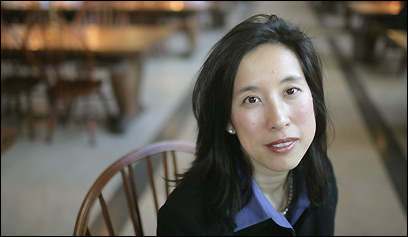 Pauline Chen
Pauline Chen(Source: Boston.com)
Medical school was not easy for me. I knew that I wanted to become a doctor to help people, but I had given little thought to the process. I was poorly prepared for many things: the pressure to excel in ways that seemed so far from caring for people; rapidly mounting debts I signed off on every semester; a roller coaster existence from chronic lack of sleep; hazing from the more experienced students and residents; and the realities of patient suffering despite my best efforts.
Even surgical residency, despite the relentlessly long hours, seemed so much closer to what I wanted to do.
Some of my professors tried to “humanize” the process. They invited us to dinner in their homes, supported our extracurricular efforts to set up health screening clinics in low-income neighborhoods, and tried to make our basic science courses more relevant to working with patients. But sitting where I am now, as someone who teaches medical students and who loves helping others as a doctor, I can understand the challenge they faced. Given the fire hose of information medical students must learn in just four years, how does one ever gently take a sip?
Despite my teachers’ efforts, I was about as miserable in medical school as I had ever been. I felt alone. Neither I nor my classmates could admit to failure, and the last thing I wanted to do was to let anyone but my closest friends know just how unhappy I was. Success in medical school was the first step to a future of helping others, and I was not about to jeopardize that.
What implications does this have for these students' performance as physicians?
In a third study, Dr. Dyrbye found that when tested for empathy, medical students at baseline generally scored higher than their nonmedical peers. But, as medical students experienced more burnout, there was a corresponding drop in the level of empathy toward patients.
Not too surprising when you think about it, but to have concrete data underscores the point. The especially distressing part was that about 10% of respondents to their surveys had considered suicide at some point during medical school. The article notes that the LCME has advocated having "Wellness" be a focus of medical education, but from my experience, simply providing the resources is not enough. Medical schools need to emphasize more socialization and honest communication between students, residents, and faculty. Without this, simply naming someone a counselor or providing a resource will not reverse this trend.
agree with your final suggestions. referenced you in a little post of my own here. have a read too. maybe our med school's wellness programs are similar. heard of craig hassed?
ReplyDeletehttp://jeffreyleow.wordpress.com/2008/11/04/burnout-and-suicide-in-medical-students/